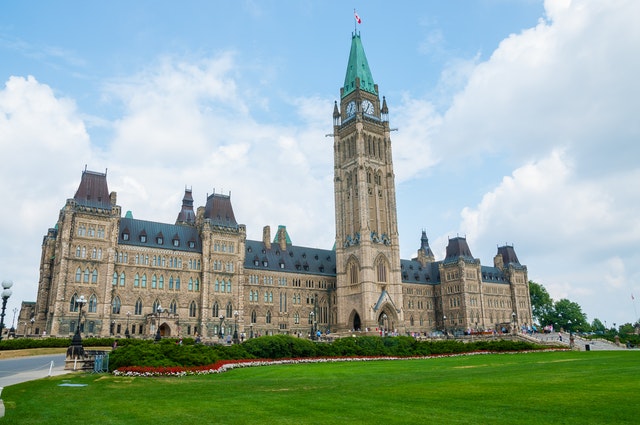Minnie Karanja
Director of Public Policy
The full budget details are accessible here: https://budget.gc.ca/2022/report-rapport/toc-tdm-en.html
Hon Chrystia Freeland, Minister of Finance and Deputy Prime Minister, on Thursday last week presented the 2022 Federal budget in the House of Commons.
This is the first budget in the last three years that is not a pre-election or “pandemic” budget. Also, the first since the Liberals and New Democratic Party (NDP) signed the supply-and-confidence agreement that assures the Liberal minority government of NDP’s support in the House of Commons until the next election date. You can find details of the agreement here.
Large spendings to support Canadians and Canadian businesses to weather the COVID-19 pandemic storm are now significantly reduced. In trying to keep some of the promises outlined in the Liberal-NDP agreement, there are some new social investments and a focus on climate action. However, to a considerable extent, the 2022 budget is a housing budget.
Housing Investments
The housing crisis nationally has been getting worse over the years and especially in the last two years as housing prices have shot way beyond reach for too many families and first-time homeowners, in an over-heated market. Not a surprise then, that housing is the first chapter in the budget and the government has signaled novel ways of working with other orders of government to tackle the challenge. The government recognizes that all levels of government need to work collaboratively to address housing and should involve the non-profit sector and co-ops. The government promises, in partnership with other levels of government, to double construction of new housing.
This review looks at the proposed investments in housing and key direct investments in Black communities.
Co-op Housing
Among the measures introduced is the generation of co-op housing to build an estimated 6,000 units through reallocating $500 million of funding on a cash basis from the National Housing Co-Investment Fund to launch a new Co-operative Housing Development Program aimed at expanding co-op housing in Canada. There is also a proposed additional $1 billion in loans to be reallocated from the Rental Construction Financing Initiative to support coop housing projects.
New Housing Accelerator Fund
Budget 2022 proposes to provide $4 billion over five years, starting in 2022-23, to the Canada Mortgage and Housing Corporation to launch a new Housing Accelerator Fund. The fund will be designed to be flexible to the needs and realities of cities and communities. Its focus will be on increasing supply, but government supports will be targeted to ensure a balanced supply that includes a needed increase to the supply of affordable housing. This new fund will target the creation of 100,000 net new housing units over the next five years.
Multigenerational Home Renovation Tax Credit
For the first time, the government recognizes the housing needs for many Canadians that live in multigenerational homes. To support these families, Budget 2022 proposes to introduce a Multigenerational Home Renovation Tax Credit, which would provide up to $7,500 in support for building a secondary suite for a senior or an adult with a disability.
A Tax-Free First Home Savings Account
The government will introduce a Tax-Free First Home Savings Account that would give prospective first-time home buyers the ability to save up to $40,000. Like an RRSP, contributions would be tax-deductible, and withdrawals to purchase a first home – including investment income – would be non-taxable, like a TFSA. Tax-free in, tax-free out.
Direct Support for those in Housing Need
Budget 2022 proposes to provide $475 million in 2022-23 to provide a one-time $500 payment to those facing housing affordability challenges. The specifics and delivery method will be announced later.
Extending the Rapid Housing Initiative
Starting in 2022-23, Canada Mortgage and Housing Corporation will receive $1.5 billion over two years, to extend the Rapid Housing Initiative. This new funding is expected to create at least 6,000 new affordable housing units, with at least 25 per cent of funding going towards women-focused housing projects.
Leveraging Transit and Infrastructure Funding to Build More Homes
The government will leverage proposed $750m for municipalities to address public transit shortfalls by requiring provincial and territorial governments to match the federal contribution and accelerate their work with their municipalities to build more homes for Canadians. This new approach by the federal government to leverage funding to municipalities and provinces including infrastructure funding is expected to increase housing construction although the number of houses is unclear.
Direct Investments in the Black Community
Funding for Black Researchers
To help increase opportunities for Black Canadian researchers, the government will provide $40.9 million over five years, starting in 2022-23, and $9.7 million ongoing to the federal granting councils to support targeted scholarships and fellowships for promising Black student researchers.
Mental Health Fund for Black federal public servants
The 2020 Public Service Employee Survey showed that Black federal public servants feel less included in the workplace – a key component of a healthy and safe work environment. Budget 2022 proposes to provide $3.7 million over four years, starting in 2022-23, to the Treasury Board of Canada Secretariat for Black-led engagement, design, and implementation of a Mental Health Fund for Black federal public servants.
Supporting Black Canadian Communities
Budget 2022 proposes to provide $50 million over two years, starting in 2022-23, to Employment and Social Development Canada for the Supporting Black Canadian Communities Initiative, to continue empowering Black-led and Black-serving community organizations and the work they do to promote inclusiveness.
Fighting Systemic Racism, Discrimination, and Hate
Recognizing that Canada’s fight against racism is far from over, Budget 2022 proposes to provide $85 million over four years, starting in 2022-23, to the Department of Canadian Heritage to support the work underway to launch a new Anti-Racism Strategy and National Action Plan on Combatting Hate.
Federal Funding for the Jean Augustine Chair in Education, Community and Diaspora
In 1993, the Honourable Jean Augustine made history as the first Black Canadian woman to be elected to the House of Commons and later became the first Black Canadian to be appointed to the Federal Cabinet. Ms. Augustine has also had a distinguished career as a social justice activist and educator. The Jean Augustine Chair in Education, Community and Diaspora, housed at York University, is focused on addressing the systemic barriers and racial inequalities in the Canadian education system to improve educational outcomes for Black students. Budget 2022 proposes to provide $1.5 million in 2022-23 to the Department of Canadian Heritage for a federal contribution towards an endowment which would support the ongoing activities of the Jean Augustine Chair in Education, Community and Diaspora.
The full budget details are accessible here: https://budget.gc.ca/2022/report-rapport/toc-tdm-en.html




